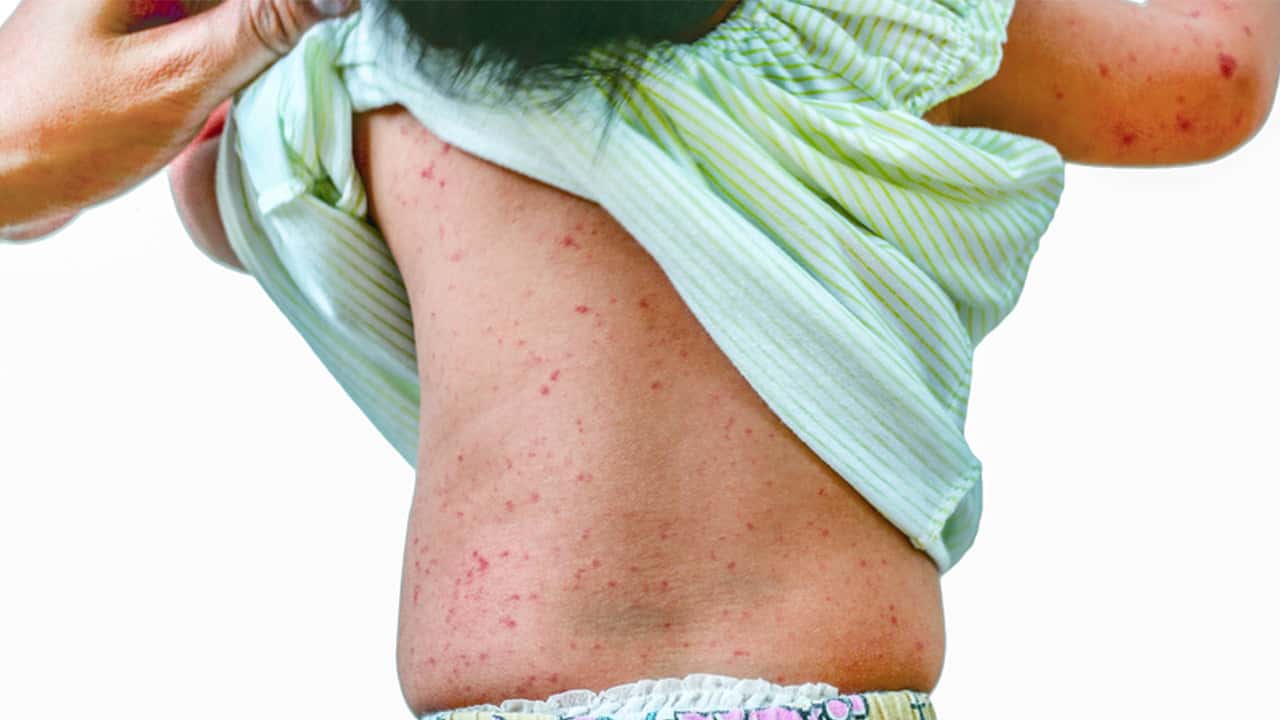Spotting Roseola Symptoms in Adults
Hello, lovely parents out there! Are you wondering if adults can get roseola, that pesky illness you’ve heard is common in toddlers? The answer is yes, although it’s rarer! Roseola, typically known for visiting the lives of little ones, can indeed make a guest appearance in the lives of adults, too. We’re here to guide you through everything you need to know about the symptoms of roseola in adults in the happiest, most informative way possible.
Roseola, also known as sixth disease, is a viral infection caused by the human herpesvirus (HHV), particularly HHV-6 and occasionally HHV-7. Kids often shake it off with nothing but a telltale rash and a fever, while it’s a bit more unusual in grown-ups. But, hey, adults are just big kids, so let’s dive into the delightful details!
What Does Roseola Look Like in Adults?
Being the super-parent you are, you’re probably a pro at spotting a rash on your kiddo. But can you identify roseola symptoms in adults? Let’s take a closer look at what to watch for:
- Fever: Just as in children, adults with roseola may first develop a fever. This can be quite high and might come before any other visible symptoms appear.
- Rash: After the fever settles, an adult might get a rash. It’s usually light pink in color and might have flat or raised spots. Unlike children, adults may find the rash to appear more prominently on the body and limbs rather than the face.
- Fatigue: Let’s face it, being an adult is tiring all on its own. Add roseola to the mix, and you may feel like you need extra naps. Fatigue is a common symptom and your body’s way of saying it needs rest to fight off the virus.
- Sore throat and runny nose: These symptoms can often mimic a common cold, but when coupled with a fever and rash, they can point to roseola.
- Swollen glands: Enlarged lymph nodes, especially around the neck, can be a sign that the body is battling roseola.
It’s important to note that symptoms can vary greatly from one adult to another, and some adults infected with the virus may remain completely symptom-free. However, if you’re feeling under the weather and are spotting these signs, a visit to your healthcare provider is a cheerful and wise next step!
How Does Roseola Spread Among Adults?
Let’s chat about how Roseola RSVPs to the adult immune system party. This infectious little plus one travels from person to person via respiratory secretions or saliva – that’s right, sharing is caring, but maybe not in this case!
Adults might get it from their youngins or even from other adults, though this is less common. Let’s keep those high fives germ-free and avoid close contact with those showing symptoms, shall we?
If you’re as curious as a cat and looking for more about this topic, keep scrolling because we have plenty more to share!

5 Things Parents Should Know in Preparing for Symptoms of Roseola in Adults
Coping with roseola in adults can be a bit of a jigsaw puzzle, but don’t you worry, dear parents! We’ve pieced together five handy tips to prepare you for this unexpected twist in the plot of adulthood:
-
Have a Game Plan for Fever Management
Since fevers are often the first sign of roseola, it’s wise to have a plan. Keep a reliable thermometer handy and know when to call the doctor – generally, this is when temperatures soar above 102°F (39°C). Over-the-counter fever reducers like acetaminophen or ibuprofen (for adults, not children unless advised by a doctor) can be helpful, but remember to stay hydrated too!
-
Create a Comfort Zone at Home
Roseola may bring some discomfort and fatigue. Create a cozy recovery area in your home filled with pillows, blankets, and access to plenty of fluids. Stock up on electrolyte drinks or ingredients for a nourishing broth that can help the unwell adult stay hydrated and comforted.
-
Understand the Rash
When the fever breaks and a rash appears, don’t panic! Ensure you have gentle, unscented lotions at home if the rash causes any irritation. Seek medical advice before applying anything new to the skin, especially if it’s not just the rash acting up. Only use products recommended by your healthcare provider.
-
Keep Communication Open with Work and School
If roseola makes an unwelcomed visit, it’s essential to let workplaces and schools know what’s going on. They may have protocols for reporting infectious diseases, plus, who doesn’t appreciate a heads up on potential germs? Remember, adults are contagious during the fever phase before the rash even says hello!
-
Practice Good Hygiene
Slowing the spread of roseola is all about excellent hygiene. Washing hands like there’s no tomorrow, using hand sanitizer when a sink isn’t handy, and keeping those sneezes and coughs under wraps (elbows or tissues, friends!) are all crucial steps in keeping everyone’s health in tip-top shape.
Bear in mind, my dearest parents, that even with all the preparations in the world, sometimes illness just waltzes right in. Staying informed about the symptoms and having a sunny outlook can make a world of difference while navigating this hiccup in health.
When to Seek Medical Attention for Roseola in Adults
While roseola in adults is generally not cause for alarm, there are times when you might need to swap the home remedies for a doctor’s visit. That time is now if the fever stays high for an extended period, any rash looks particularly severe, or if any symptoms are causing you concern. Trust your instincts—if something feels off, a quick call or visit to your healthcare provider can provide peace of mind and guidance. Medical professionals are like superheroes for health, and they’re there to help you dance through any and all viral vexations.
As a cheery end to our conversation, always keep an eye out for dehydration signs in adults dealing with roseola, such as decreased urine output, dizziness, and extreme thirst. These are flashing billboards saying, “Hello, please hydrate me or see a doctor!”
Adult life may not have prepared you for adult roseola, but now, armed with knowledge and a sprinkle of optimistic preparation, you’ll be as ready as ever to take it on. Happy health to you and your family!
See more great Things to Do with Kids in New Zealand here. For more information see here
Disclaimer
The articles available via our website provide general information only and we strongly urge readers to exercise caution and conduct their own thorough research and fact-checking. The information presented should not be taken as absolute truth, and, to the maximum extent permitted by law, we will not be held liable for any inaccuracies or errors in the content. It is essential for individuals to independently verify and validate the information before making any decisions or taking any actions based on the articles.




